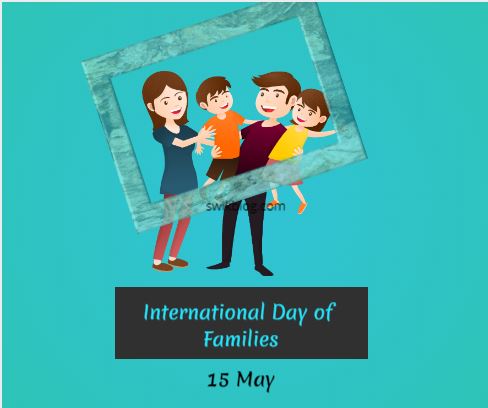
International Day of Families was established by the United Nations in 1993 to create awareness about the issues faced by the families throughout the year. It is observed on every 15th of May. This day was proclaimed under the United Nations General Assembly with resolution A/RES/47/237 to highlight the importance of international communities that are attached to the families.
The United Nations also serves the International Day of Families in a manner to remember that due to social, economic, and demographic factors the family structure has undergone many changes. This annual event provides an opportunity to emphasize the important role that families play in communities and also raises issues that affect the family.
In 1994, the first International Day of Family was celebrated on the 15th of May. The structure of the family is the most important aspect of social harmony and a peaceful society. Since 1996, for this Day the United Nations has been providing an annual theme for the celebration of International Day of Families.
Theme
This year the theme of International Day of Families 2023 is- Families And Demographic Change’
In anticipation of the thirtieth anniversary of the International Year of the Family in 2024 (IYF+30), the International Day of Families in 2023 will be held in-person, centering its focus on significant demographic shifts and their effects on families. This gathering aims to disseminate up-to-date information concerning demographic trends, particularly those related to aging and intergenerational solidarity. Furthermore, it seeks to foster an examination of how these trends impact family dynamics while recommending policies that prioritize the well-being of families worldwide.
Demographic change stands as a critical megatrend that significantly affects our world and the well-being of families globally. It is primarily driven by patterns of fertility and mortality. The decline in fertility rates brings about advantages for families, enabling them to prioritize investments in the health and education of their children. Consequently, this investment contributes to the reduction of poverty and fosters improved socio-economic development.
Studies indicate a correlation between decreasing fertility rates and higher women’s engagement in the labor force. Nonetheless, the decline in fertility also results in smaller family units, posing challenges in effectively fulfilling caregiving and household duties. Consequently, during times of unemployment or illness, families with fewer members may experience a reduced support network. Additionally, low fertility rates have the potential to weaken labor forces and social structures, leading to far-reaching and uncertain ramifications across domains such as social security and gender equality.
Our world continues to respond to the COVID-19 crises so that our economies and communities will be able to rethink in a way in which they work to achieve for the greater quality.
History
In the 1980s, the United Nations started to concentrate on family issues. In 1983 the Commission for social development, following on since the recommendations of the Economic and Sociological Council under the resolution proposed the role of the family in the development process (1983/23). The Secretary-General called upon to raise awareness of the problems and needs of the family among decision-makers and the general public as well as appropriate ways of responding to them.
The General Assembly proclaimed the International Year of the Family in its Resolution 44/82 on 9 December 1989. In 1993, in a Resolution (A/RES/47/237) the General Assembly agreed that on every 15th of May the International Day of Families will be observed.
On 25 September 2015, the 193 United Nations Member States officially adopted the Sustainable Development Goals with a set of 17 targets that aimed at eradicating poverty, inequality, abuse, and preventable deaths, combating environmental degradation, and inaugurating a period of prosperity for everyone, everywhere. For achieving all of these objectives, families and family-oriented policies and services are important.
Swikriti Dandotia










